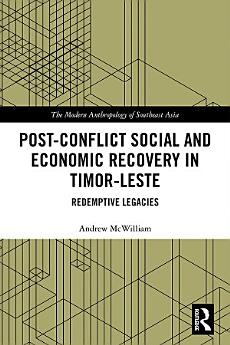Post-Conflict Social and Economic Recovery in Timor-Leste: Redemptive Legacies
About this ebook
Based on extensive comparative literature and field-based empirical research, the book explores the protracted process of cultural and economic revival following a generation-long period of military repression and a sustained struggle for national independence. With a focus on the experiences of Fataluku ethno-linguistic communities in Timor-Leste, the study offers nuanced perspectives on the legacies of conflict and local forms of governance, the revitalisation of customary exchange and ancestral religion. Presenting both an optimistic and alternative narrative in which a traumatised population finds new hope and emergent prosperity, this book highlights a renewed concern with inter-generational well-being and widespread aspirations for prosperity and material benefits following decades of deprivation. It is also an analysis of post-conflict resilience against the odds, illustrating the adaptive possibilities of tradition in the context of globalisation and expectations of modernity.
As a major contribution to understanding the emergence and expansion of informal transnational labour migration out of East Timor, this book will be of interest to academics, researchers and policy makers of contemporary Timor-Leste, Southeast Asian Politics, Southeast Asian Culture and Society, Development Studies, Anthropology and Conflict Studies.
About the author
Andrew McWilliam is Professor of Anthropology in the School of Social Science at Western Sydney University, Australia. He is Editor in Chief of The Australian Journal of Anthropology (TAJA) and co-editor of the Routledge Handbook of Contemporary Timor-Leste (2019).






